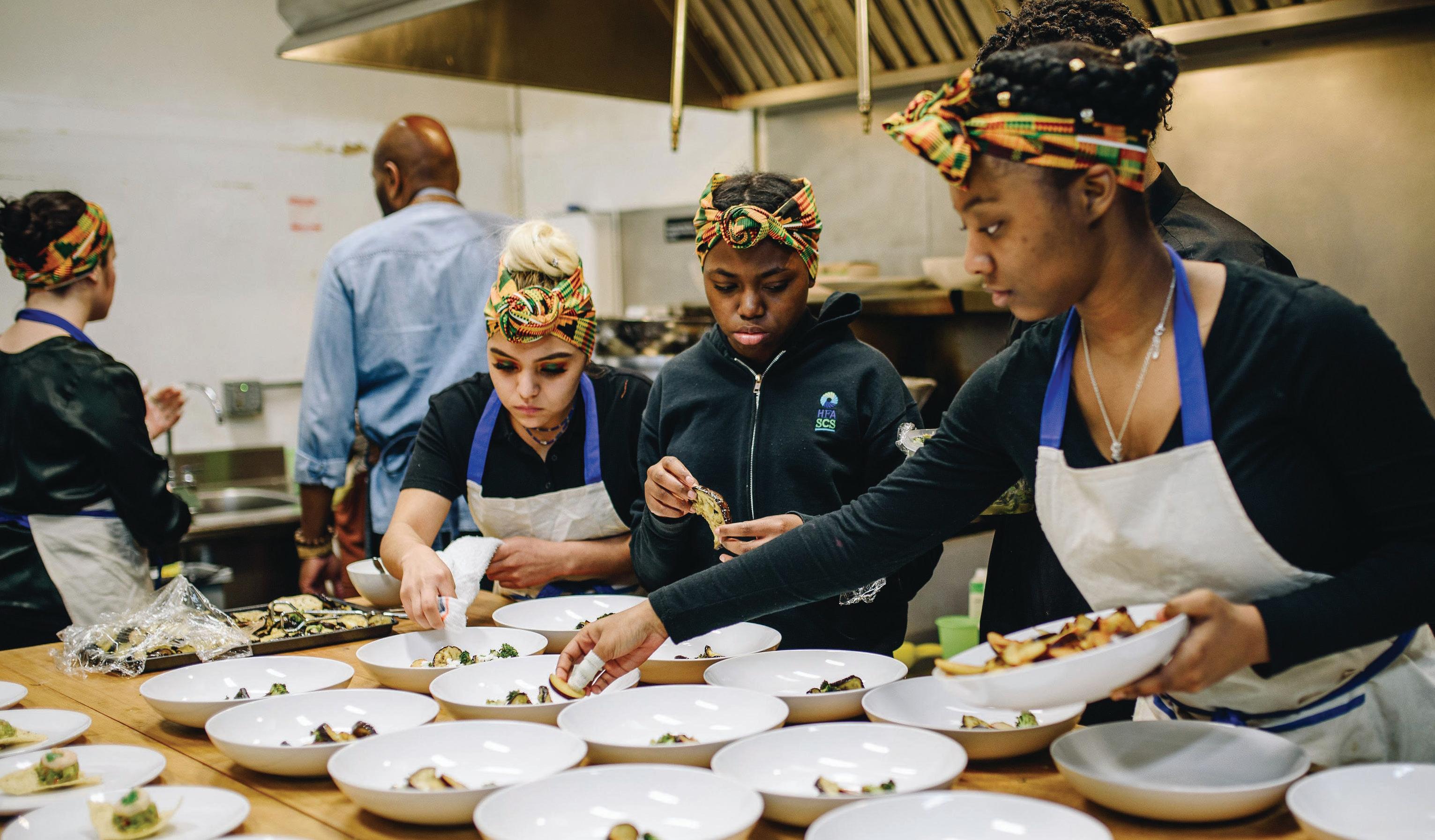
2 minute read
Finding a Taste of Place
JACK RAYMOND ,Contributor
Jason Lummen, owner and brewer at The Peoples Cider Co., has learned that when it comes to good cider, the secret is proximity. Since opening in 2012, he has fostered a close relationship with Hill Brothers Orchards, a family-operated farm a short 13 miles away from his production facility. Hill Brothers are settled on the Fruit Ridge, an agricultural mecca that grows more than half of Michigan’s apples. Beyond eating apples, the area lends itself to cider-specific varieties like Northern Spies, English Sharps and even a couple donate stone bound peaches they cannot sell, to unclassified apples grown exclusively for Lummen. Unlike mass produced ciders from concentrate, Lummen’s ciders taste like a snapshot of our state.
“There’s a huge difference and that comes down to the wine term of terroir, that taste of place that you find in wine,” Lummen says. “You’re going to taste what makes apples from Fruit Ridge better than apples from other places."
The proof is on the palate. Tannic and complex, Lummen’s ciders reveal an obvious respect for whole fruit. But arguably more important than the cider, Lummen’s support of local agriculture fuels our region’s biodiversity during a time when factory farms turn to shortcuts and monocultures.
“A lot of Northern Spies are getting ripped out because they’re falling out of favor,” Lummen says. “Meijer won’t buy a bunch of Northern Spies because nobody makes apple pies anymore. Everybody just wants an apple for their lunch box."
Of course, farmers need to turn a profit to survive and cideries on the whole aren’t large enough buyers to influence agriculture writ large, but the industry has taken measures to keep biodiversity alive. Two of Michigan’s largest cideries, Vander Mill and Virtue, stick to Michigan pressed juice, and another major player, Blake’s, runs their own orchard. Ultimately, committing to local is a win-win for cideries both for flavor and for the state’s economy.
On a smaller scale, Lummen believes his connection to farmers markets creates a symbiosis between business and agriculture. Whether vendors donate stone bound peaches they cannot sell, to bartering cider for blueberries, his style harkens to a more communal version of business.
And Lummen has a holistic philosophy regarding sustainability. That means sourcing equipment locally, like his Muskegon-made can seamer. It also means managing ambitions and making sure the company doesn’t over extend itself. While plenty in craft beverage have collapsed by trying to grow too large, Lummen sees the value in staying small and serving his community.
So while you might have to travel to try his cider, the trips are worth the effort. The apples always taste best when they don’t fall far from the tree.










